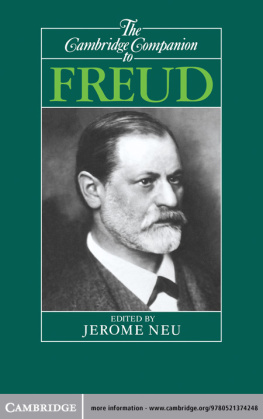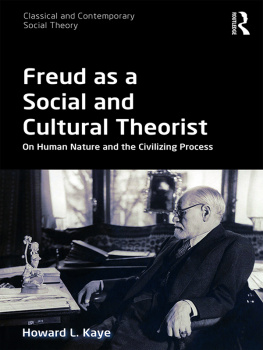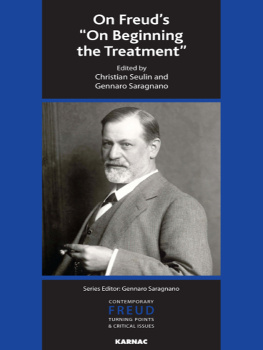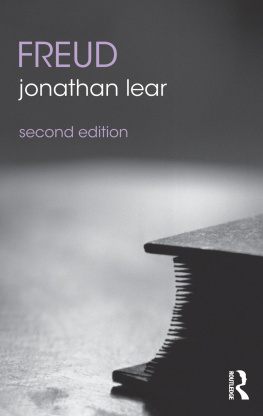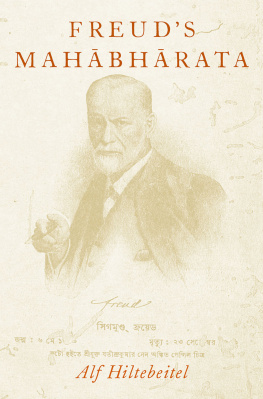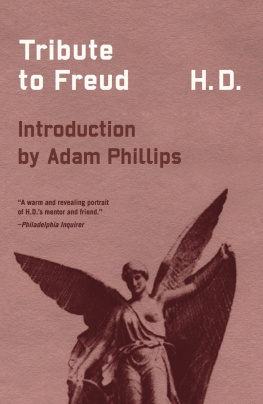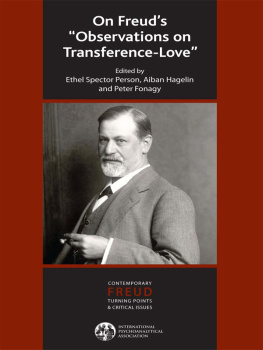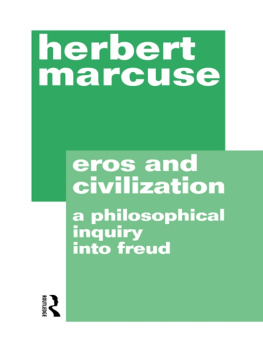This is the second in a series of companions to major philosophers that Cambridge will be issuing in the next few years. Each volume will contain specially commissioned essays by an international team of scholars together with a substantial bibliography, and will serve as a reference work for students and nonspecialists. One aim of the series is to dispel the intimidation such readers often feel when faced with the work of a difficult and challenging thinker.
Does Freud still have something to teach us? The premise of this volume is that he most certainly does. Approaching Freud from not only the philosophical but also historical, psychoanalytical, anthropological, and sociological perspectives, the contributors show us how Freud gave us a new and powerful way to think about human thought and action. They consider the context of Freuds thought and the structure of his arguments to reveal how he made sense of ranges of experience generally neglected or misunderstood. All the central topics of Freuds work from sexuality and neurosis to morality, art, and culture are covered.
New readers and nonspecialists will find this the most convenient, accessible guide to Freud currently available. Advanced students and specialists will find a conspectus of recent developments in the interpretation of Freud.
THE CAMBRIDGE COMPANION TO
FREUD
The Cambridge Companion to
FREUD
Edited by Jerome Neu

CAMBRIDGE UNIVERSITY PRESS
Cambridge, New York, Melbourne, Madrid, Cape Town, Singapore, So Paulo, Delhi
Cambridge University Press
32 Avenue of the Americas, New York, NY 10013-2473, USA
www.cambridge.org
Information on this title: www.cambridge.org/9780521377799
Cambridge University Press 1991
This publication is in copyright. Subject to statutory exception and to the provisions of relevant collective licensing agreements, no reproduction of any part may take place without the written permission of Cambridge University Press.
First published 1991
12th printing 2008
A catalog record for this publication is available from the British Library.
ISBN 978-0-521-37424-8 hardback
ISBN 978-0-521-37779-9 paperback
Cambridge University Press has no responsibility for the persistence or accuracy of URLs for external or third-party Internet Web sites referred to in this publication and does not guarantee that any content on such Web sites is, or will remain, accurate or appropriate. Information regarding prices, travel timetables, and other factual information given in this work are correct at the time of first printing, but Cambridge University Press does not guarantee the accuracy of such information thereafter.
CONTRIBUTORS
RACHEL B. BLASS is a graduate student in clinical psychology at the Hebrew University of Jerusalem. She is working at the Sigmund Freud Center on a series of papers reexamining and reconceptualizing traditional psychoanalytic theories of development.
NANCY J. CHODOROW is Professor of Sociology at the University of California, Berkeley. She is an advanced candidate at the San Francisco Psychoanalytic Institute and author of The Reproduction of Mothering: Psychoanalysis and the Sociology of Gender and Feminism and Psychoanalytic Theory.
JENNIFER CHURCH teaches philosophy at Vassar College. She has written several articles on consciousness and irrationality.
JOHN DEIGH teaches moral and political philosophy at Northwestern University. He is an associate editor of Ethics.
SEBASTIAN GARDNER is Lecturer in Philosophy at Birkbeck College, University of London.
CLARK GLYMOUR is Alumni Professor of Philosophy at Carnegie Mellon University and Adjunct Professor of History and Philosophy of Science at the University of Pittsburgh. He is completing a book on Freud and the foundations of cognitive science.
JAMES HOPKINS is Lecturer in Philosophy at Kings College, London, and assistant editor of Mind. He is coeditor with Richard Wollheim of Philosophical Essays on Freud, and with Anthony Savile of Psychoanalysis, Mind, and Art: Essays for Richard Wollheim (forthcoming).
GERALD N. IZENBERG teaches modern European intellectual history at Washington University. He is also an advanced candidate and instructor at the St. Louis Psychoanalytic Institute.
JEROME NEU teaches philosophy at the University of California, Santa Cruz. He was for two years a Guest Student at the Boston Psychoanalytic Institute, and is the author of Emotion, Thought, and Therapy.
ROBERT A. PAUL is Candler Professor of Anthropology in the Institute of Liberal Arts at Emory University. He is an advanced candidate in the Emory University Psychoanalytic Institute. He is editor of Ethos: Journal of the Society for Psychological Anthropology.
DAVID SACHS has published essays on Plato, Aristotle, Wittgenstein, and Freud, and also on moral psychology. He is Professor of Philosophy at The Johns Hopkins University.
CARL E. SCHORSKE, a retired Professor of History, directed Princeton Universitys program in European Cultural Studies. He is the author of Fin-de-sicle Vienna: Politics and Culture.
BENNETT SIMON is training and supervising analyst at the Boston Psychoanalytic Society and Institute, and Clinical Associate Professor of Psychiatry, Harvard Medical School. In 1989-90, he was Sigmund Freud Professor of Psychoanalysis at the Hebrew University of Jerusalem. He has written on problems of the Oedipus complex and is author of Mind and Madness in Ancient Greece and Tragic Drama and the Family: Psychoanalytic Studies from Aeschylus to Beckett.
RICHARD WOLLHEIM teaches philosophy and the humanities at the University of California, Berkeley, and the University of California, Davis. As well as being the author of Sigmund Freud, he is the author of several psychoanalytically influenced books, such as The Thread of Life and Painting as an Art. He is Honourary Associate of the British Psycho-Analytic Society.
ACKNOWLEDGMENTS
Earlier versions of the following essays have appeared as indicated. The essays are published here with the permission of the copyright holders.
Jerome Neu, Freud and Perversion, in Sexuality and Medicine, vol. I, ed. E. E. Shelp (Dordrecht, The Netherlands: D. Reidel, 1987). Copyright Jerome Neu.
David Sachs, In Fairness to Freud, The Philosophical Review 98 (1989). Copyright David Sachs.
Carl Schorske, Freud: The Psycho-archeology of Civilizations, The Proceedings of the Massachusetts Historical Society 92 (1980). Copyright Massachusetts Historical Society.
Richard WoUheim, Freud and the Understanding of Art, British Journal of Aesthetics 10 (1970) and in Wollheim, On Art and the Mind (Cambridge, Mass.: Allen Lane and Harvard University Press, 1973). Copyright Oxford University Press.
JEROME NEU
Introduction
if often he was wrong and, at times, absurd,
to us he is no more a person
now but a whole climate of opinion
under whom we conduct our different lives
(W. H. Auden, In Memory of Sigmund Freud)
Despite distorted understandings of Freuds views and despite periodic waves of Freud-bashing, Audens assessment remains essentially correct. Freuds influence continues to be enormous and pervasive. He gave us a new and powerful way to think about and investigate human thought, action, and interaction. He made sense of ranges of experience generally neglected or misunderstood. And while one might wish to reject or argue with some of Freuds particular interpretations and theories, his writings and his insights are too compelling to simply turn away. There is still much to be learned from Freud.

